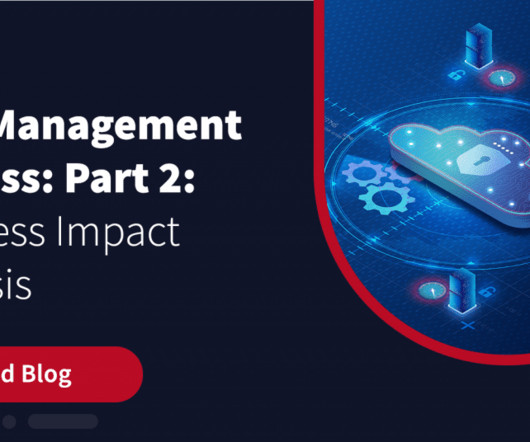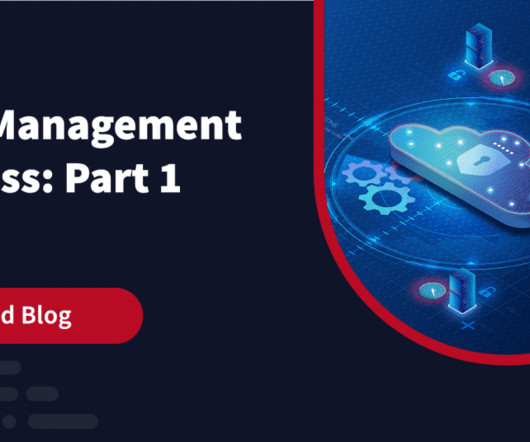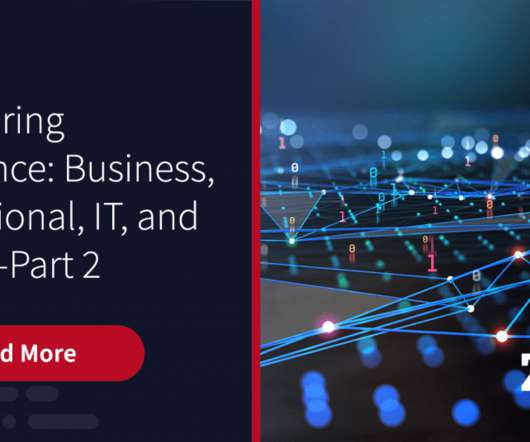Risk Management Process- Part 2: Business Impact Analysis
Zerto
APRIL 25, 2023
The Critical Role of Business Impact Analysis In the first part of our miniseries on risk management, we introduced the operational risk management process and outlined its different parts. This time, we are exploring one of those key parts: the business impact analysis (BIA) process.


















Let's personalize your content